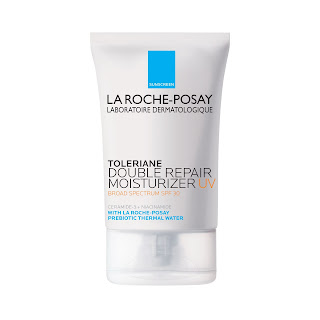- SPF
- Oil-based cleanser or micellar water
- Serum
- Moisturizer
- Lip mask
- Chemical exfoliant
- Sheet mask
In creating your first skin-care routine, keep it simple. The most important skin-care advice would be to keep it simple. Start with your essentials and extend as you see fit.
Those basics should always include the following steps, performed in the following order:
- In Morning
- At Night
In the event that you have never begun a skincare routine, it is imperative to begin straightforward and powerful. Utilize the least items important to get the greatest outcome.
1. Drink Water
Drink two glasses of water, when you woke up. It may sound over the top, but it worked for you and helped to significantly reduce your dry skin.
2. Wear SPF
If you don’t protect your skin with SPF, it doesn’t matter how many anti-aging creams you use. If there is only one thing you do during the day, use sunblock.
Opt for a sunscreen that is SPF 30 or higher, and apply it daily (even when it's cloudy), always as the final step in your skin-care routine. Some quality options: EltaMD UV Active Broad-Spectrum Sunscreen 50+, Supergoop Glowscreen SPF 40, and Coppertone Pure & Simple Sunscreen Lotion for Face SPF 50, which is formulated specifically for sensitive skin.
When choosing which type of sunscreen to apply, there are two routes to go: Chemical or mineral-based (in some cases, both are combined into one formula). Mineral sunscreens work as a shield, blocking the sun's rays from penetrating the skin, thanks to ingredients like zinc oxide or titanium dioxide. Chemical sunscreens, on the other hand, protect the skin against UV rays by absorbing them, relying on ingredients such as octocrylene or avobenzone.
While daytime is about preventing damage, Night is the time to use more powerful anti-aging ingredients to repair your skin.
1. Cleanse
Cleansing your skin in the evening, however, should never be compromised or skipped. At the end of the day, it’s important to cleanse to remove not only skin-care products and makeup that you applied in the morning, but also excess oil, sweat, dead skin cells, pollutants, and other debris that collect on the skin throughout the day.
While picking a facial cleanser, specialists state that beginners ought to select a delicate, hydrating one.
Several reliable cleansers pick that is ideal for skin-care incorporate CeraVe Hydrating Facial Cleanser (2019 Best of Beauty Winner) and Cetaphil's beloved Gentle Skin Cleanser (a different Best of Beauty award winner).
2. Use a Serum
In the PM it is important to use actives that will change your skin while you are sleeping. Retinol, Vitamin E, Ferulic Acid, Hyaluronic Acid, and fruit acids are all important to use at night. They act as exfoliants and over time can boost collagen production. You should try Visha Skincare Advanced Correcting Serum which contains retinol, vitamin E, ferulic acid, and salicylic acid, along with a natural skin lightener to help diminish sun spots and scars.
3. Moisturize
It turns out you really do need both a serum and a moisturizer. Put on a good hydrating cream after you’ve used a serum.
Here are some of the top ones to know as they pertain to moisturizer:
Hyaluronic acid: Plumps skin and restores lost hydration.
Ceramides: Crucial for skin-barrier strength and overall health (and important for those with dry skin and eczema).
Vitamin C: Provides antioxidant protection and overall skin brightening.
A few dermatologist-favorite moisturizers that tick many of the above boxes include La Roche-Posay Toleriane Double Repair Face Moisturizer, Vichy Aqualia Thermal UV Defense Moisturizer, and Clinique Dramatically Different Moisturizing Gel.
For oil-prone skin include Neutrogena Hydro Boost Water Gel Moisturizer and EltaMD AM Therapy Facial Moisturizer.
Once you have a basic routine down, you can begin to add in extra steps here and there, as needed. A good place to start is with exfoliation, adding it in as an additional step once or twice per week using alpha hydroxy acids (AHAs), or beta hydroxy acids (BHAs), which work in different ways to slough off excess buildup on the skin's surface.
You can also add in a face mask here and there — though Shokeen recommends doing so no more than once or twice per week. Face masks should be used periodically. You can apply to clean, dry skin. Seek out a face mask that's formulated to target whatever specific skin concerns you're facing that day; common examples include hydrating, clarifying, calming, and brightening masks.
- Stick to items that don't have an excessive number of fixings and are without aroma, and attempt new items individually so you can perceive how your skin responds.
- Don't experiment too much. Give your skin a chance to get used to a product or active agent for at least two to three months before switching.
- Stay consistent. As with many things in life, consistency — going through the same skin-care routine steps every day, morning and night — is key to producing and maintaining real results.
Everyone’s skin is different and your first step for starting a routine should be figuring out what your skin type is.
If you have oily skin, you are able to use stronger concentrations of acid and can use retinol with your products at night. If you have dry or sensitive skin, then only add one active [into your routine] at a time so there is less irritation to your skin. Introduce new products one at a time and try them out for a month or so before deciding if they’re right for you.
You can get more Beauty Tips: https://growingcreatives.blogspot.com/

























No comments